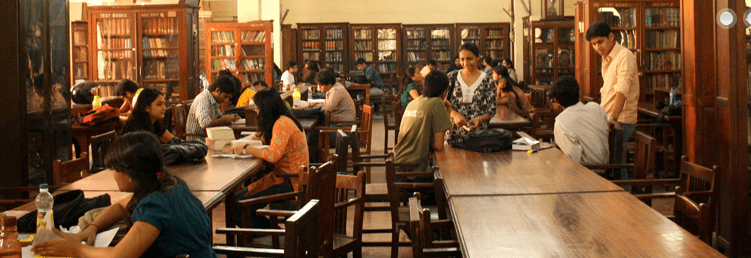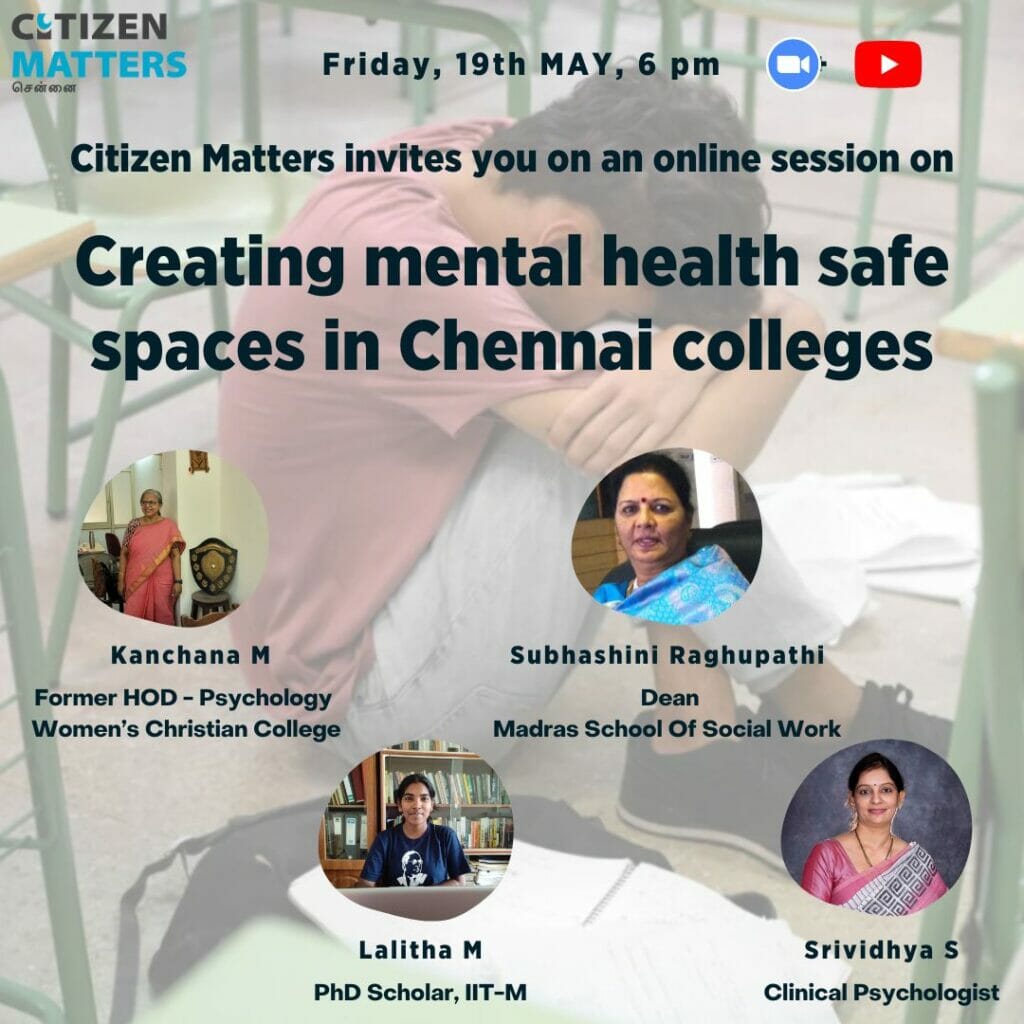There has been a spate of suicides by students in Chennai’s colleges in recent months. Four students have died by suicide in a span of three months at IIT-Madras this year.
The 2021 NCRB report states that one died by suicide every 42 minutes in India. Tamil Nadu had the third-highest number of instances of student suicide, which is 9.5% of total student suicides across India.
Mental health support for students has been sorely lacking in institutions of higher education. Without adequate support and mechanisms to address grievances on college campuses, students are left to lonely and uphill battles by themselves
Citizen Matters brings together a panel to examine factors that adversely affect the mental health of students and the kind of steps and support colleges can offer.
Read more: Interview: How can Chennai bring its steeply rising suicide curve down?
Interventions to boost mental health support in colleges
Experts cite academic pressure, bigger aspirations, unrestrained exposure to technology, and the pandemic as some of the broader factors that trigger the mental health of students.
The state government has planned to rope in counsellors to help the students out. However, experts suggest there is a stigma in reaching out to counsellors, apart from questioning the implementation of the counselling process.
Furthermore, the Tamil Nadu government launched the MaNaM programme (Mananala Nallaatharavu Mandram) in December 2022. The purpose of the programme is to support the mental health of government medical college students and prevent suicidal tendencies. This programme will be expanded to arts and science colleges, says the government.
This programme involves a professor and a team of ten students in every college to provide peer counselling services.
Even though these initiatives to cater to mental health issues are welcome, we are still yet to see a holistic solution to address mental health issues among college students in Chennai.
To address the mental health issues college students face, one needs to answer these questions: What triggers mental health issues among college students? How do academic pressure, caste, class, location and other factors contribute to mental health issues? What are the systems in colleges to address their problems? Are the systems effective?

Date: May 19, Friday
Time: 6 pm – 7 pm
The discussion will be held over Zoom and live-streamed on our YouTube channel.
A summary of the discussion will be shared on the website, and the recording will be available on YouTube.
Our speakers
Subhashini Raghupathi, Dean at Madras School Of Social Work
R Subashini is the Dean of Madras School of Social Work. Apart from being a teacher and administrator, she is also a psychologist who renders professional services to many higher educational boards. Previously, she was the former HOD of Psychology at Justice Basheer Ahmed Sayeed College. She has also addressed many national and international conferences and forums.
M Kanchana, Former Head of Department of Psychology, Women’s Christian College
M Kanchana is a Professor of Psychology with over 33 years of teaching and research experience. She is the former Head of the Department of Psychology, at Women’s Christian College, Chennai. She has implemented mental health programs for youth. In addition, she has worked with special children, juvenile delinquents and their families. With training in Counselling, she has supervised PG students in counselling skills. She won the Best Teacher Award from the Tamil Nadu Teachers Association in 2019, the Pittsburg Cluster Award in 1998 and the Rotary Club of Madras Metro Award in 2022 for Excellence in Teaching.
Srividhya S, Academician and Clinical Psychologist
Srividhya is an Academician and Clinical Psychologist with over 20 years of experience in the field of behavioural coaching and emotional intelligence. She works with organisations corporates, institutions and individuals to improve their emotional intelligence and overall well-being.
She is also a part of the first cohort of women entrepreneurs trained by the National Commission for Women in partnership with the Indian Institute of Management, Bangalore, to create a one-of-its-kind product for mental health to prevent suicides.
Lalitha M, PhD Scholar, IIT Madras
Lalitha is currently pursuing her PhD in Urban Studies in the Department of Humanities and Social Sciences at IIT Madras. She had done her Masters in Sociology from the University of Hyderabad. She has been active in Ambedkarite politics and has been raising her voice for the rights of Dalit-Bahujans, especially in the field of higher education.
